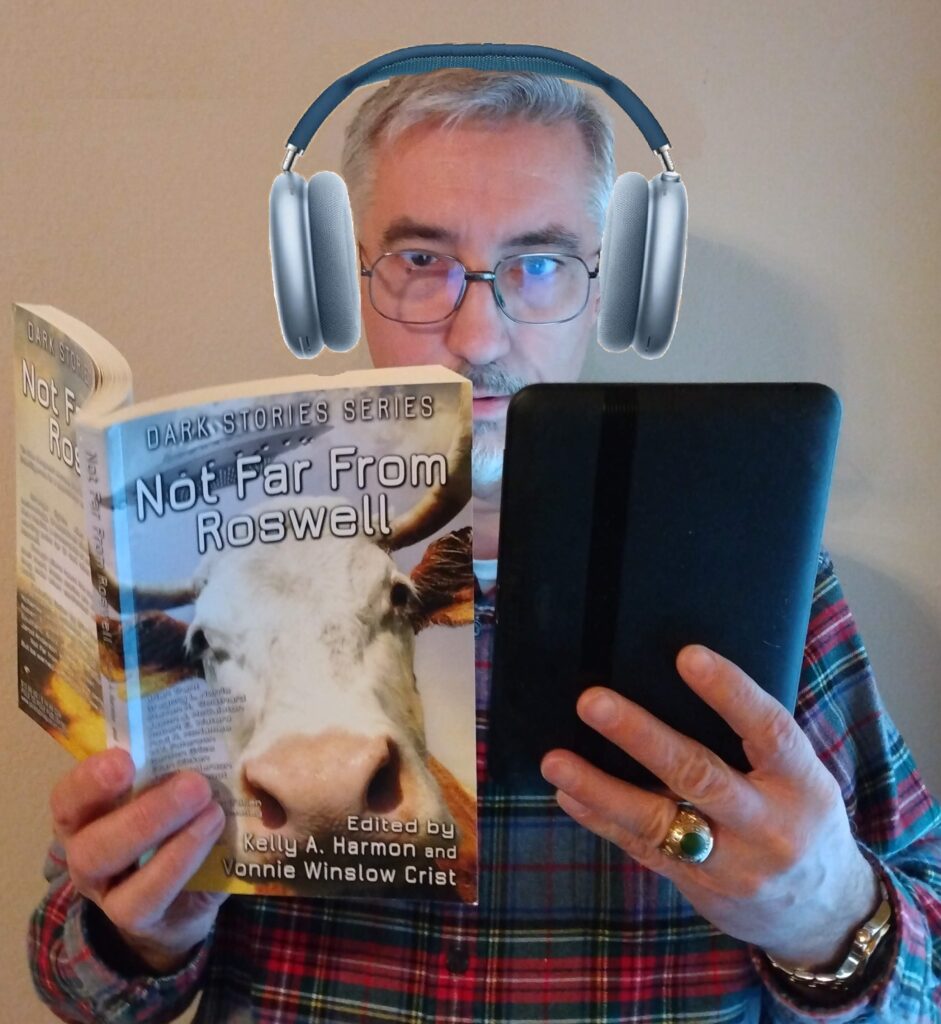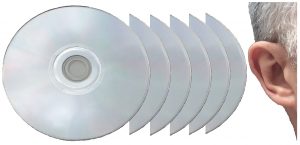As text delivery methods, physical (paper) books, ebooks, and audiobooks each appeal in different ways. But which provides the best reading comprehension and recall?
Of the three types, which one embeds the text more firmly in your memory? Perhaps there’s no difference at all, or perhaps the answer is different for each reader.
Few have researched this vital question. The only studies I could find compared two of these media, not all three, and they reached contradictory conclusions.
A 2010 study found students comprehended the written transcript of a podcast better than those who listened to it. In 2016, another study (funded, in part, by Audible.com) noted no difference in comprehension between those who listened to an audiobook and those who read the ebook version. A statistics-laden article by Rob Errera claimed that college students retained information better from physical books than from ebooks.
Confused? Me too. If we think about the factors that help us comprehend and remember things, perhaps those factors will guide us to the best of the three media.
- Oral Story Hard-wiring. Before written language, our ancestors told stories orally. We evolved to listen to the cadence of words, the emphasis, the flow. That embedded preference might give audiobooks an edge.
- Quick Review. As we read, we stumble at times. When that occurs, we go back over what we just read to understand it better. That’s much easier with printed text than with an audiobook, so that should favor physical books and ebooks over audiobooks.
- Our Wandering Minds. Sometimes, while reading, we just zone out for a while. Getting back to the point before stopped paying attention is easier for ebooks and physical books than for audiobooks.
- Multitasking. This can lead to the mind-wandering problem mentioned above. Multitasking is far more common while reading audiobooks than with the other forms, and is likely to reduce comprehension and recall.
- Individual Learning Style. Breaking news: each person is different. Some prefer a story read to them (audiobook) and others prefer to see the text (physical book or ebook). To eliminate bias, any study should include people of both types.
- The Story Itself. If we focus on fiction (my specialty), the vividness of the imagery, our identification with the characters, and the quality of writing—these all help us comprehend and remember good stories. This factor, of course, is independent of the delivery mechanism, but may override all the previous factors.
Considering these factors and the contradictory study findings, I’ll conclude (as all scientific studies do) by saying more research is necessary.
As a personal note, I read books by all these methods, in roughly equal proportion. The books I recall and comprehend best are those I believe are written the best, or that say something provocative and memorable. As for you, the books you’ll love and cherish most—in whatever medium—are those written by—
Poseidon’s Scribe


 Printed words are sterile by comparison. They sit there on the screen or page until your mind gives them substance. But the narrator of an audiobook breathes life, drama, tension, humor, horror, etc. into those same words. A good narrator gives the characters different and distinct voices that help conjure a picture of each one.
Printed words are sterile by comparison. They sit there on the screen or page until your mind gives them substance. But the narrator of an audiobook breathes life, drama, tension, humor, horror, etc. into those same words. A good narrator gives the characters different and distinct voices that help conjure a picture of each one.